North Korea rejects call to declare end of Korean War over persisting ‘US hostile policy’
North Korea has rejected as premature a call by the South to declare a formal end to the decades-long Korean War as long as the "US hostile policy" toward Pyongyang persists.
North Korea’s Vice Foreign Minister Ri Thae Song made the comment on Friday in response to South Korean President Moon Jae-in's call for an official declaration to end the 1950-53 Korean War as a way to restore peace on the Korean Peninsula.
"Nothing will change as long as the political circumstances around the DPRK remains unchanged and the US hostile policy is not shifted although the termination of the war is declared hundreds of times," Ri said in a statement carried by the state-run news agency KCNA, using North Korea's official name, the Democratic People's Republic of Korea.
"The US withdrawal of its double standards and hostile policy is the top priority in stabilizing the situation of the Korean peninsula and ensuring peace on it," he added.
The North Korean diplomat underlined that American weapons and troops deployed in South Korea and its vicinity as well as regular US military drills in the region “all point to the US hostile policy toward North Korea getting vicious day by day.''
In his speech at the United Nations General Assembly earlier this week, the South Korean president proposed that the two Koreas, the United States, and possibly China declare the formal end to the 1950 war which is still technically being fought since a ceasefire was declared in 1953.
US President Joe Biden claimed in his address to the UN assembly on Tuesday that Washington wanted "sustained diplomacy" to resolve the crisis surrounding North Korea's nuclear and ballistic missile programs.
North Korea has rejected US overtures as long as Washington presses on with its unilateral sanctions against Pyongyang and military drills near its coasts.
In a meeting held Wednesday on the sidelines of the UN General Assembly in New York, senior diplomats from the United States, South Korea, and Japan discussed North Korea and other regional issues in the wake of a series of missile tests by Pyongyang.
The meeting came after North Korea fired two ballistic missiles off its east coast earlier this month and South Korea test-fired a submarine-launched ballistic missile (SLBM) for the first time just hours after.
The show of force marks the latest volley in an arms race in which both countries have developed increasingly sophisticated weapons amid fruitless efforts to start talks to defuse tensions.
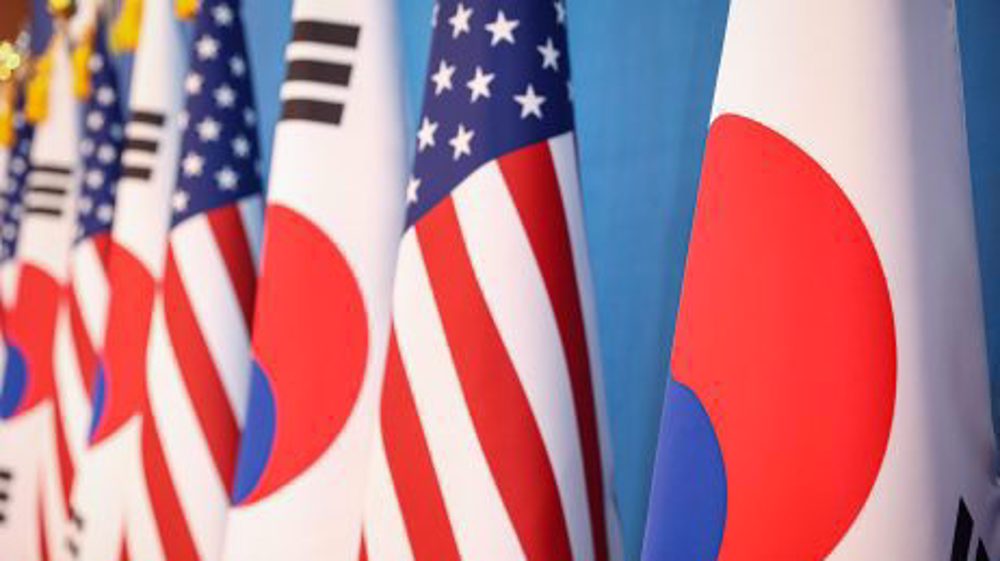
US-South Korea trade tensions

China ‘firmly’ opposes countries making trade agreements with US at its expense
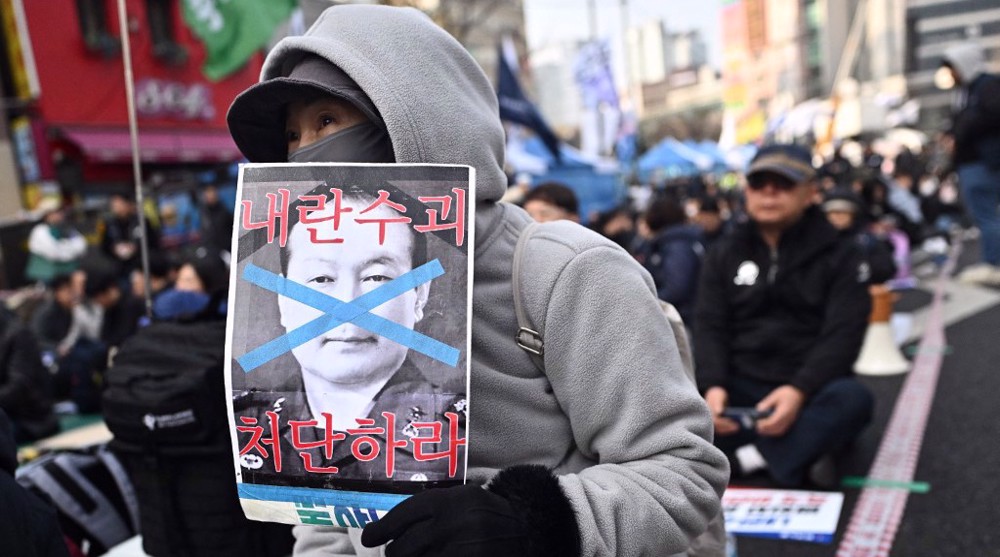
South Korea's court removes president over martial law controversy
'War is defeat': Pope Francis will be remembered for his moral stand on Gaza
Cases of Esfandiari and Hazamy: France’s quiet war on Muslim, Iranian, pro-Gaza voices
Indonesia, Iran stress commitment to expanding relations
Israel threatens 'larger' war on Gaza with new evacuation orders
Senior diplomats from Iran, Russia, China hold talks with IAEA chief
Two US marines accused of raping Japanese women in Okinawa
VIDEO | Shahin Hazamy arrested primarily for his viral pro-Palestine social media posts: Filmmaker
Houthi: Bab al-Mandab, Arabian Sea closed to Israeli, US ships


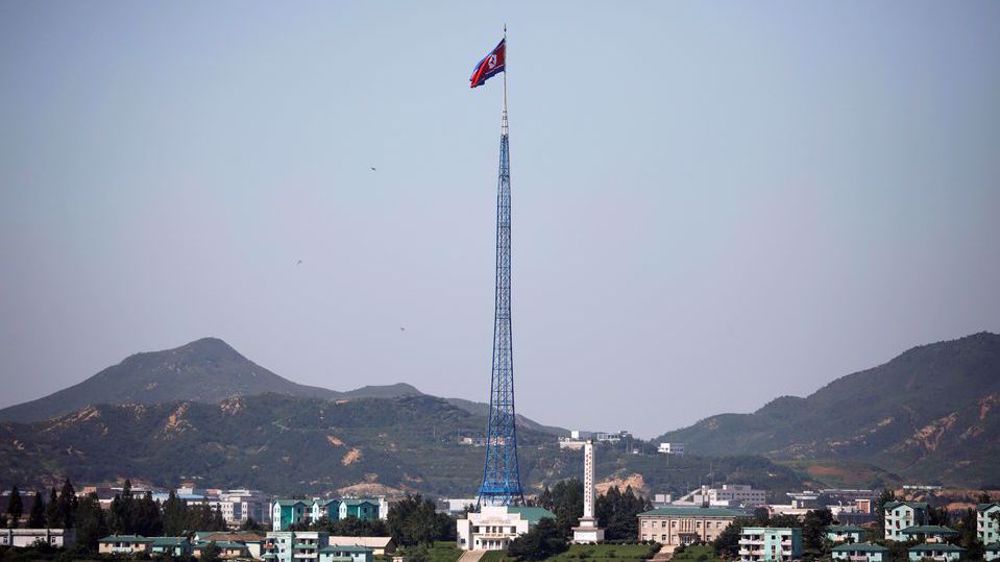
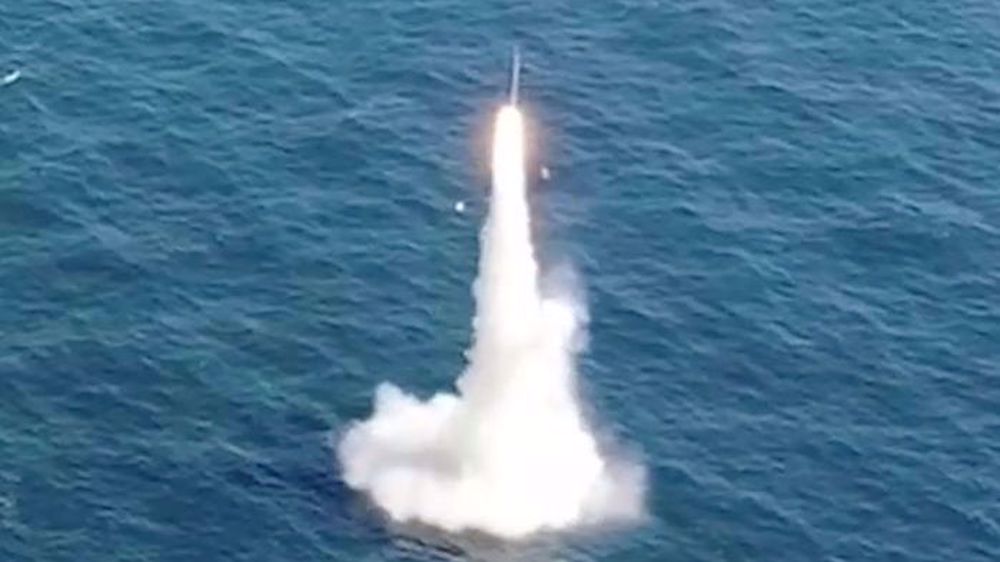
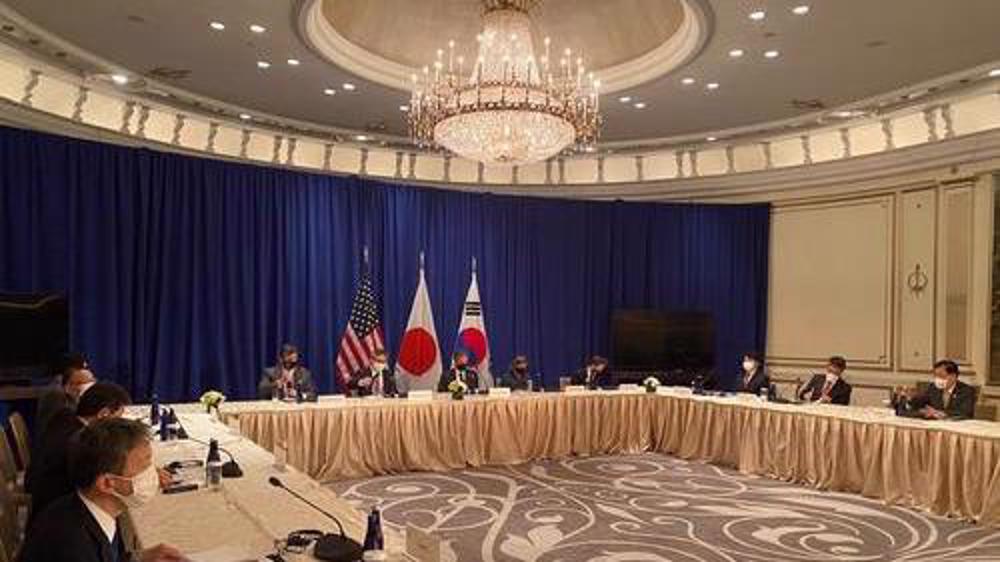




 This makes it easy to access the Press TV website
This makes it easy to access the Press TV website